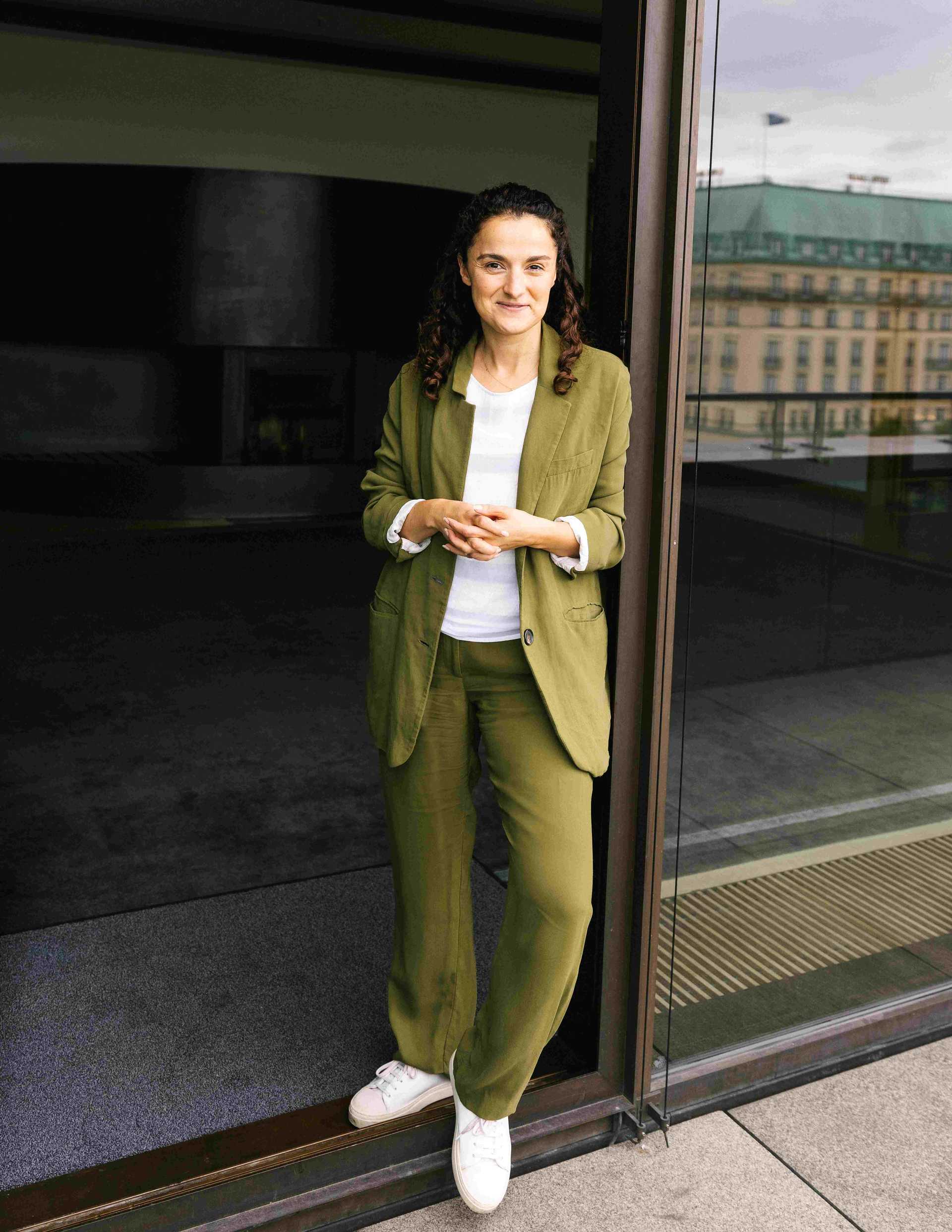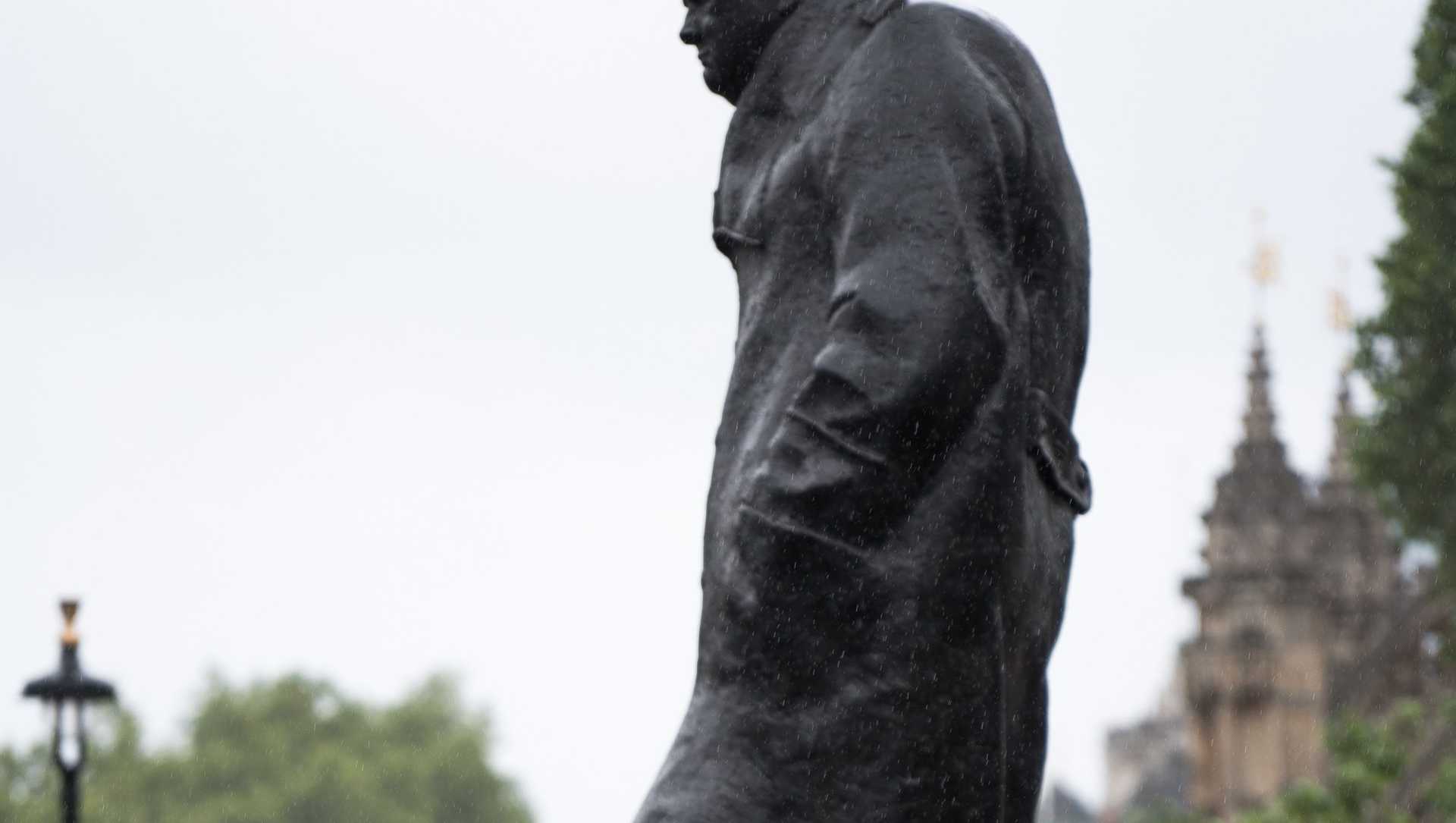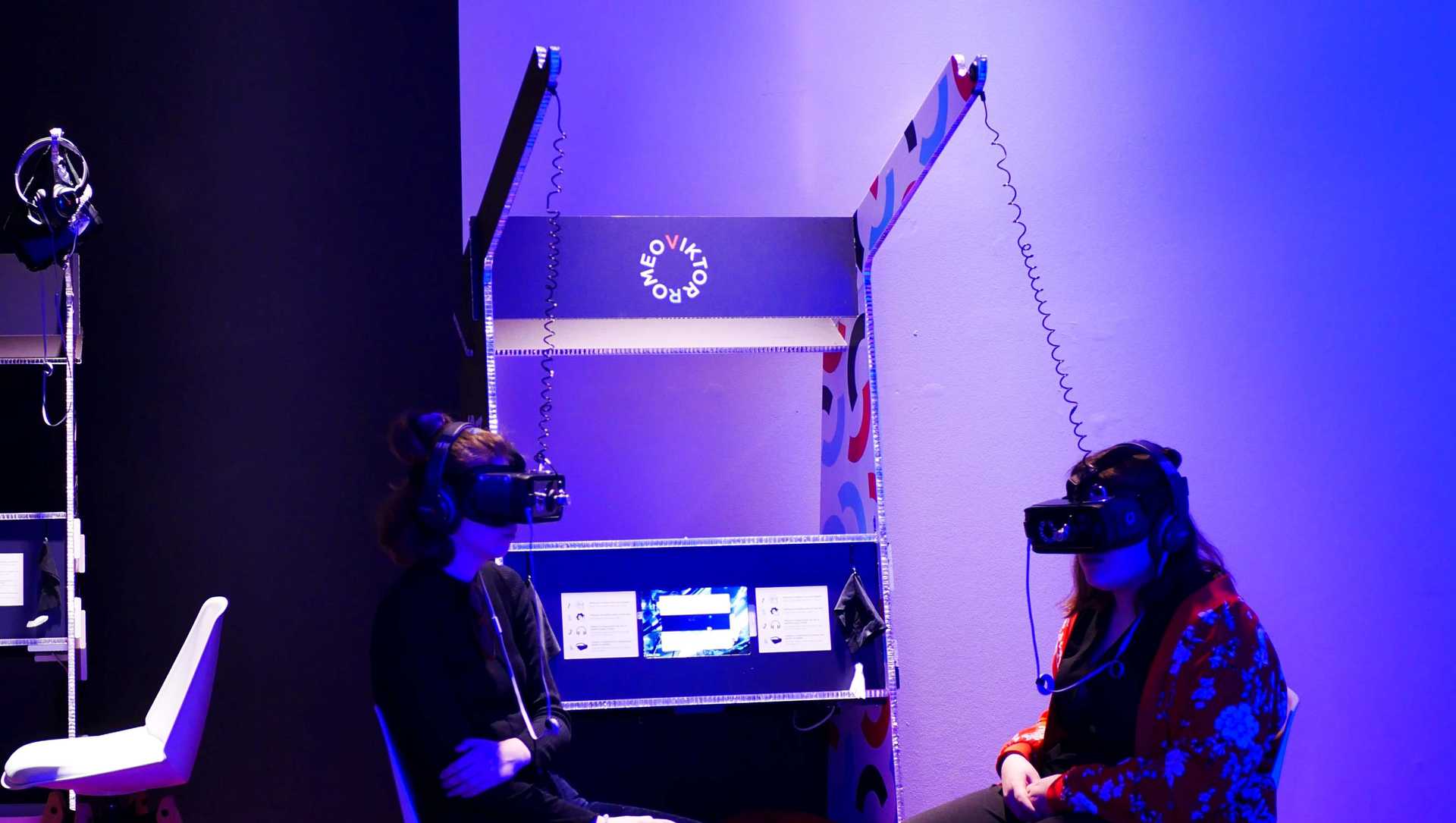The Allianz Foundation Next Generations Study 2023

Eight out of ten openly question whether their generation should have children
Young adults in Germany, Greece, Italy, Poland and the United Kingdom share a deep sense of anxiety about the future. Eight out of 10 openly question whether their generation should have children, as many believe their societies will become less livable in the future. They feel that their countries are becoming less equal, less safe and more divided, and they want to have a say in how these issues and other pressing concerns are addressed. But how are they making their voices heard? The vast majority are taking individual and everyday actions, such as voting and changing what they eat and how they shop and travel. However, only few of them have so far chosen to amplify their individual voices and exert more pressure on decision-makers through collective action, for example by joining a social movement.
To learn more about how young adults imagine and shape a livable future society, the Allianz Foundation commissioned the SINUS Institute with conducting a representative survey among 10,000 young adults (aged 18 to 39) in Germany, Greece, Italy, Poland and the UK — five countries that reflect Europe’s diverse realities on much-discussed issues such as minority rights, anti-democratic tendencies and climate action.
Wait a second! Are you a data aficionado? Or an explorer?
We want you to be able to share as much of our knowledge as possible. Therefore we have tailored our website to your needs. For all of you who need the pure data - visit our data center. And the ones who want to get to know the specific country cases we curated or who want to get to know our six engagement types of young adults - visit our Explore section.

What matters most: the future young adults want
Although Germany, Greece, Italy, Poland and the UK differ in terms of their economic conditions, political landscapes and historical trajectories, the young adults surveyed in these countries show more similarities than differences. This 'European' perspective also extends to what young adults see as a desirable future society.
Nearly three out of four (71%) strongly agree that a robust social welfare state and an independent justice system should be the fundamental building block of a future society.
Fifty-two percent of young adults seek a fair and eco-friendly future with equal opportunities for minorities and the less privileged, not only in education and employment, but also in sharing the responsibilities of the green transition.
Strong democratic institutions, including a free press and a participatory political system are prioritized by 47% of young adults.
Overall, there is less agreement among young adults when it comes to personal wealth, military strength and traditional values. While some identify these as a priority (35%), most do not. Personal wealth, in particular, is a highly divisive issue.
These are the aspects that young adults view as relevant for the future they want:
Top priority: Security and affordability
(e.g., strong social safety net, affordable rent, safe public spaces)
“very important’”
High priority: A living planet and social justice
(e.g., carbon neutrality, low inequality)
“very important“
Medium priority: Strong democratic institutions
(e.g., independent media and citizen participation in politics)
“very important”
An ambivalent priority: Personal wealth, military strength and traditional values
(e.g., national traditions, strong military)
“very important”

Waiting room to the future: the future young adults expect
“Young adults perceive their societies as being in a state of transition — in a waiting room to the future!”
By and large, young adults want to live in a future society that is safe, affordable, eco-friendly and fair. Yet, they feel that the conditions for building that future are under threat. Although there is some cautious optimism regarding ecological developments and opportunities for migrants and other minorities, in most other regards all five countries are expected to decline over the next 10 years.
Green, yet less equal
The trend about which young adults are most hopeful is climate action, for example promoting the use of renewable energies. The majority of young adults support today’s green transformation agenda and expect their countries to become more eco-friendly over the next 10 years. Close to two thirds feel cautiously hopeful that the fight against climate change can be won.
Attitudes towards climate change
‘I’m hopeful we can win the battle against climate change'
Young adults across countries feeling cautiously hopeful that “the battle against climate change can be won”.
Besides this trend (though this is mostly not directly connected to climate action) many fear that the gap between rich and poor will grow (59%), in part due to rising energy, food and transportation costs, which two out of three young adults expect. These perceived risks likely explain why a robust social welfare state remains crucial for most.
Ten year projection for economic developments: a less equal future
Many young adults expect that the future will be economically more precarious, and that they will face:
0 %
expect higher living costs
0 %
expect higher inequality overall
0 %
expect fewer high-paying jobs
0 %
expect worse work-life balance
Young adults have conflicting feelings about their country’s ability to defend them against threats from beyond their national borders. Close to 60% of respondents agree that Russia’s war in Ukraine could spread to their country. Yet, about the same number rejects the idea of compulsory military service outright. Despite their reluctance to serve in the military, many young adults expect their country’s armed forces to expand over the next 10 years (40% vs. 23% who think otherwise).

Picture by Markus Spiske on Unsplash
However, this higher protective wall is not reassuring to them. In fact, more young adults agree than disagree that their countries will become less safe in the future, not only because of geopolitics but also because of an eroding justice system, which 30% predict, especially in Greece (41%) and Poland (37%).
Diverse, Yet More Divided
Despite their grim economic outlook many young adults expect the future to bring better opportunities for migrants, the LGBTQI+ community and other minority groups in particular. These opportunities extend beyond the job market to areas such as the education system. At the same time, notably more young adults agree than disagree that social cohesion will suffer in the years to come, and that the rift between different groups in society will widen. These projected divisions can not only be attributed to an ongoing cultural shift from traditional to secular, individualistic values — which some embrace and others despise. They also reflect deep disagreement over so-called wedge issues, especially those related to diversity. For example, while 69% of young adults, on average, support the right of same-sex couples to adopt children, only 39% do so in Poland.
Attitudes towards equality
“Equality of opportunity for migrants, the LGBTQI+ community and other groups”
Although 62% of young adults cope with these insecurities by remaining cautiously optimistic about their own personal future, young adults perceive their societies as being in a state of transition — in a waiting room to the future that is marked by profound uncertainties and in which the old ways of doing things no longer seem to work and new forms of “making” the future have yet to prove effective.
62% remain cautiously optimistic about their own personal future
These “old ways” apparently include the current policymaking processes: While young adults do acknowledge today’s politicians as de jure leaders, they also regard them with mistrust. For 55%, this mistrust runs so deep that they agree with the provocative statement that politicians are “puppets of powerful, shadowy elites.” In the same vein, industry is often regarded as a barrier to change, especially when it comes to the green transition. The mainstream media, too, are widely accused of pursuing their own agendas rather than reporting the facts. Conversely, young adults express some excitement about old and new forms of grassroots politics, such as social movements, citizens’ initiatives and new collaborations with artists and the cultural sector. However, there is a gap between interest and participation. A total of 57% of young adults are in favor of street-level protest, yet most have never taken part in any.

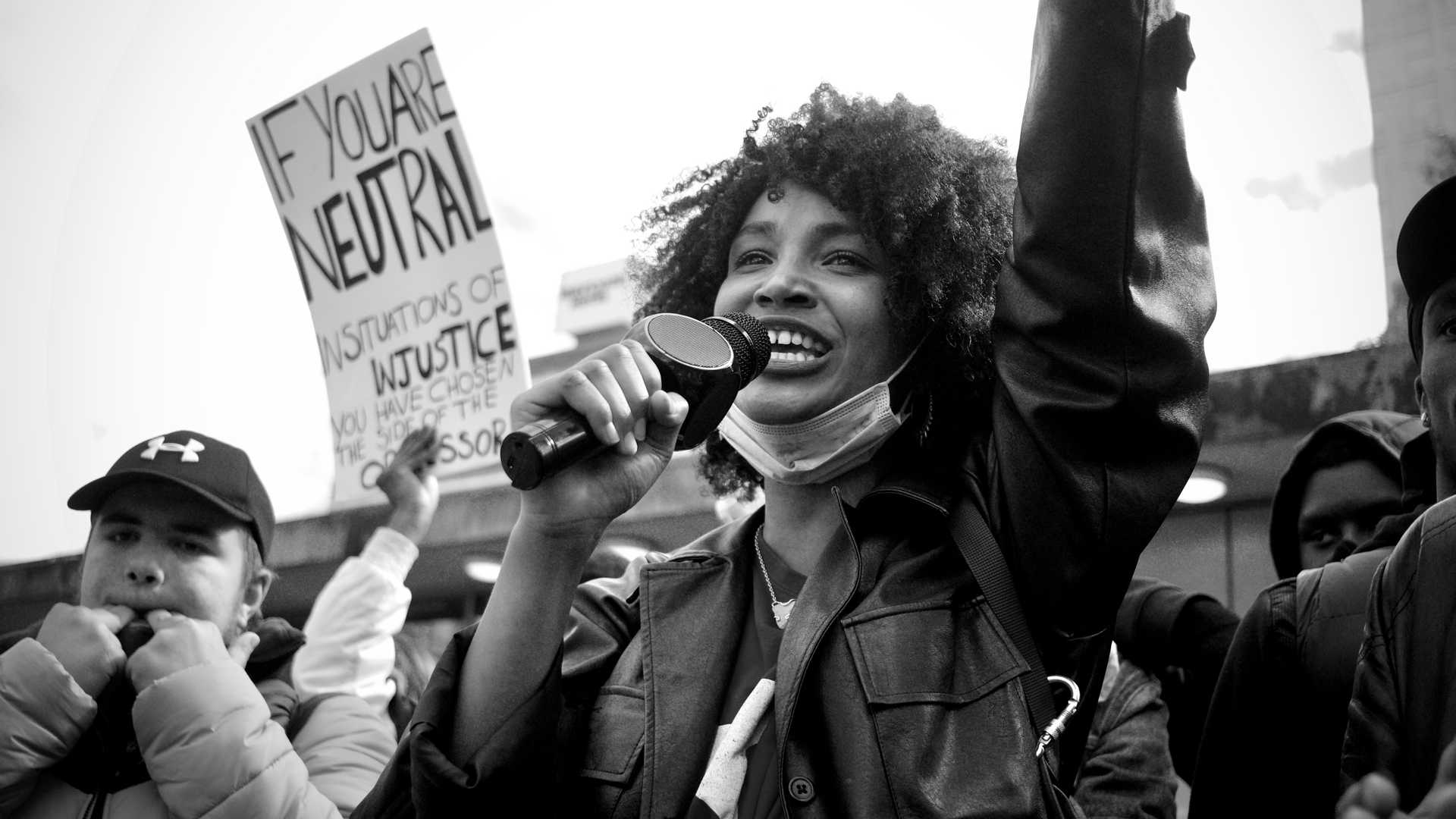
Engagement
Room for Growth: young adults' civic action
Most young adults want to have a say in their country’s future. And a clear majority of them already do have a say in individual ways, such as by voting and having political conversations. Yet, young adults are more hesitant when it comes to amplifying their individual voices and collectively pressuring decision-makers and the public.
Preferred: Individual Everyday Actions
0 %
of young adults vote
0 %
donate money or items
0 %
boycott products with a bad ecological footprint
0 %
share their political opinions with those in their social circle
Civic engagement has many faces — ranging from more formalized acts such as voting to more “hands-on” collective actions like joining a protest march to less visible everyday efforts like shopping and travelling in ways that are less harmful to people and the planet. While all modes of engagement can potentially impact policies and public sentiments, well-coordinated collective actions are often more effective.
On an individual level, a majority of young adults in all five countries are already active. Many vote (76%, on average), donate money or things (63%), boycott products with a bad ecological footprint (45%) and share their political opinions with those in their social circle and at work (60% and 44%, respectively). Compared to these individual actions, team efforts are few and far between, though: On average, more than 70% of young adults have never joined a protest march or demonstration, and just as many have never participated in a citizens’ initiative — even though the majority of them call for more grassroots efforts. When addressing this ambivalence and asking about their willingness to get involved, about a quarter of the population express an interest in doing so — in addition to the 25% to 30% who are already active, thus growing the potential recruitment pool for collective action to about 50% of young adults in Germany, Greece, Italy, Poland and the UK, an invaluable asset for a resilient civil society.
Street-level protest
Non-violent civil disobedience
Support a political party or movement
Yet, given young adults’ deep anxieties about their country’s future, these numbers beg the following questions:
- Does their current involvement align with their concerns about pressing issues such as climate change, social inequality and material insecurity?
- Are the current modes of engagement suitable for an age group which more than any other “lives” online and is used to being given ample opportunities for co-creation?
- And, most importantly: Why do young adults take civic action? Why not?
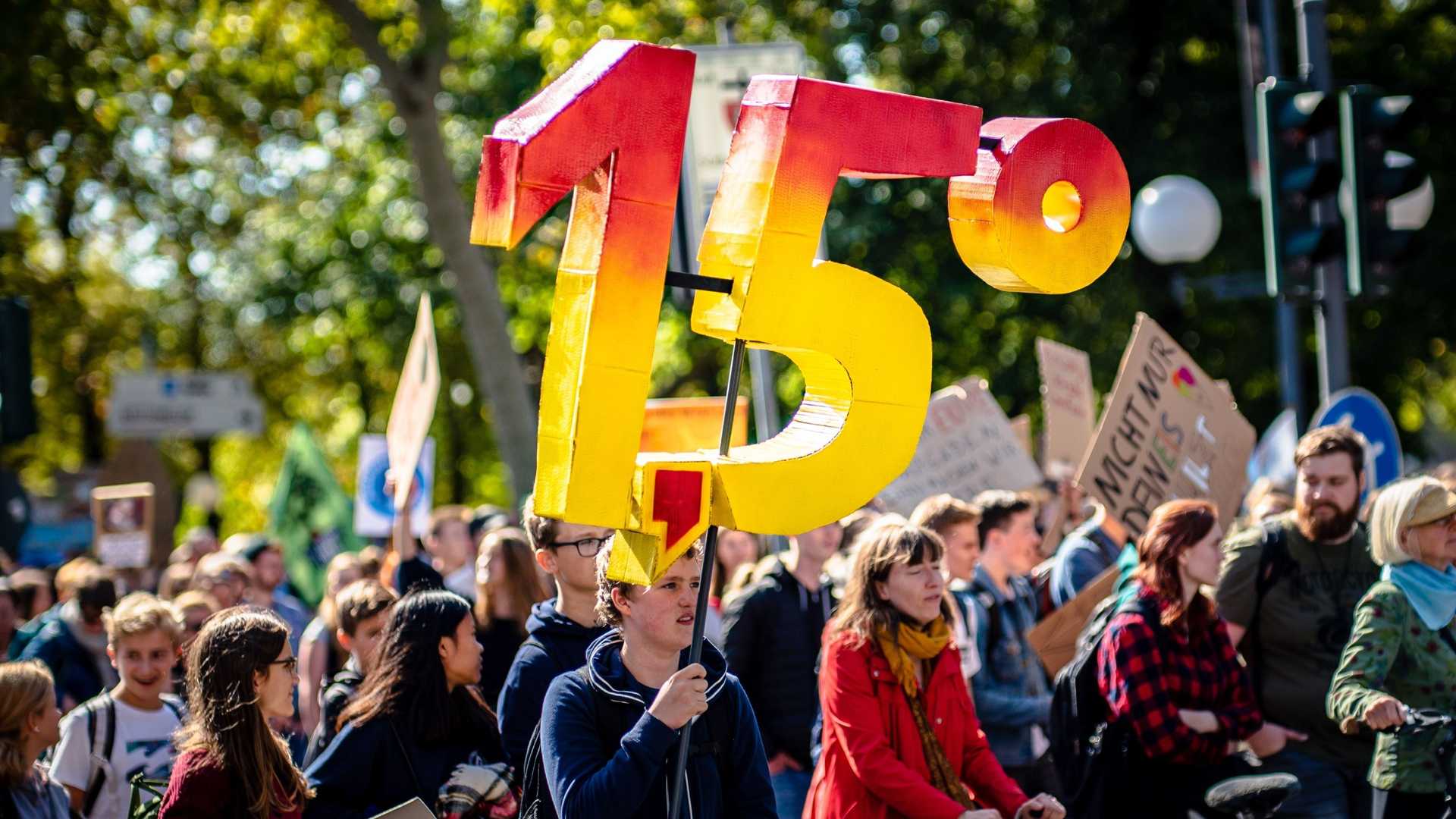
© mika baumeister auf unsplash
The Why: A Call of Duty and Personal Growth.
Why do young adults take civic action?
In particular, young adults get involved when they sense a moral duty or a chance for personal growth. Forty-five percent say they invest their time, treasure and talent because they want to be sure, in the future, that they did everything they could, and about four out of 10 simply see it as their “duty” as citizens. For 41%, civic engagement is spurred by a desire for personal development, such as learning about conscious consumption or gaining new skills while planning a political event.
0 %
take action to be sure that they did everything they could for a better future
0 %
take action because they see it as their "duty"
0 %
take action to develop as a person
Across the five countries, young adults tend to prioritize purpose over personal gain. Many have moved toward civic engagement due to their profound worry about a specific problem.
Climate change, discrimination and racism exert a particular pull: Around 60% of those who are deeply concerned about one of these issues have already taken some form of action.
Call to action issues: Climate change, discrimination and racism
to 68% of those who are deeply concerned about one of these issues have taken action

Aline Levkovich on Unsplash
The Why Not: No Idea, No Desire, Too Risky
Why do young adults not take civic action?
“I’ve got a wife and two kids and a mortgage. I can’t just go on protest marches every day.”Focus group participant in the UK
Potential downsides of engagement
It cannot be assumed that all young adults want to get more involved in civic engagement but simply lack the knowledge and time (32% and 29%, respectively, identify these as major barriers). In fact, around 50% are either unwilling or unsure about going on a protest march, joining a citizens’ initiative or another form of collective action; one in four prefers not to talk about political issues and one in eight does not plan to vote.
This reluctance does not always signify a lack of interest, but also a concern about the potential downsides of getting involved in hot-button issues: Numerous young adults say they do not have the courage to take civic action, and between 54% and 69% agree that, in their country, doing so could expose them to several risks — including physical harm, hate speech (especially online) or even legal consequences.
Between 54% and 69% agree that getting involved in their country could expose them to risks
While many can put up with conflicts with friends and family, stress and frustration, less than one third would be willing to face economic, physical or legal risks, even if they strongly believe in the cause.

Will Francis on Unsplash
“Political Camps” As a Risk Factor and a Solution
The study identifies six types of civically engaged young adults across the five countries.
The study identifies six types of civically engaged young adults across the five countries: Those who have, so far, taken little to no civic action can be allocated to three groups: Eleven percent belong to the politically left-leaning Hesitant Progressives who have yet to act on their pronounced concerns about environmental and social justice. Likewise, members of the sizable Quiet Mainstream (33%) are mostly inactive, but also less politically interested. Their counterparts to the right are the Passive Traditionalists (8%) who, despite their strong religious affiliations, are not particularly involved.
The other three groups comprise the civically engaged population. The largest is the Proactive Center (24%), whose affiliates are less driven by any particular issue, but are nonetheless willing to be involved. The youngest and most left-leaning group as well as the group with the highest overall level of civic engagement are the Progressive Movers (14%), who are strongly dedicated to climate action and the rights of disenfranchised groups, including migrants and the LGBTQI+ community. Their counterparts on the right are referred to as Conservative Campaigners (10%). The members of this group tend to promote traditional values and personal wealth. They are more organized and less afraid of physical violence or legal risks.
The juxtaposition between these Progressive Movers and the Conservative Campaigners alone indicates a potential for conflict that is fueled by deep disagreements over wedge issues such as migration. Nevertheless, each group also serves as a “safe space” for like-minded individuals, sheltering them from outside attacks by state authorities, online trolls and others who disagree with them. Thus, they also help mitigate the risks to which “their” people are exposed and thereby encourage civic engagement.
Although their contrasting ideological positions may suggest there is little room for constructive dialogue, the survey results indicate several windows of opportunity, as both groups show significant agreement on issues such as citizen participation, green infrastructure and work–family policies.
Germany, Greece, Italy, Poland and the UK: Six engagement types of young adults
In detail: The six engagement types of young adults in Europe
Who are the young adults that take civic action to address inequality, climate change and other pressing issues? And who are the ones that do not? Want to know more, explore!

Are young adults truly the “movers of tomorrow”? The answer is …
Are young adults truly the “movers of tomorrow”? The answer is “yes — potentially". But they cannot single-handedly change the course their societies will take. Not least because of the risks and disadvantages that to this day prevent many young adults from getting involved.
To learn more about what exactly is needed to unleash the civic potential of young adults, the Allianz Foundation invited 78 leading voices from civil society, the arts and journalism to seven interactive Future Labs in seven European cities — Athens, Berlin, Istanbul, London, Palermo, Warsaw and Prizren in Kosovo. Valuable lessons emerged from them, including the need to craft more compelling change narratives, address burnout, create and defend safe spaces and foster dialogue among young adults, civil society and its public and private funders. All the insights and recommendations are detailed in the Allianz Foundation Future Labs report, which is available to download here.

About the Study
Understanding young adults: Our research method
The Allianz Foundation Next Generations Study 2023 focuses on two generations of young adults: Generation Z (whose adult members are currently aged 18 to 26) and Generation Y, also referred to as Millennials (currently aged 27 to 39).
Given young adults’ pivotal role in the Europe of today and tomorrow, this study takes a closer look at how they imagine a future society and act to shape that future. The following three questions form the core of the study:
What kind of future society do young adults want to live in?
What kind of future society do they expect to live in?
What action do they take to help create the future they want — and why/why not?
To address these questions, the Allianz Foundation commissioned the SINUS Institute with conducting a study among young adults (aged 18 to 39) in Germany, Greece, Italy, Poland and the UK — five countries that reflect Europe’s diverse realities on much-discussed issues such as minority rights, anti-democratic tendencies and climate action.
Phase 1: Online focus groups
Five focus groups were conducted to gain an initial insight into how young adults view and shape the future. The guided discussions lasted 90 minutes each and were conducted online in the local language.
Phase 1: Where, who and when?
Diverse group of 34 young adults (aged 18 to 39), i.e. six to eight young adults per country.
The online focus groups were conducted between June 27 and July 4, 2022.
Phase 1: What?
- Pressing social issues and leading actors
- Visions for an ideal society
- Scenario-building: What would it take to get there?
- Civic engagement: Actions taken, actions considered, drivers and barriers, perceived risks
Phase 2: Representative survey
To validate the true-to-life input from the focus groups, a large-scale survey was carried out online. The survey sample mirrors the young adult populations in the five countries.
The survey consists of 2.6 million answers to 312 survey questions and subquestions.
Phase 2: Where, who and when?
10,000 young adults in Germany, Greece, Italy, Poland and the UK.
The survey was conducted between 3 September and 7 November 2022.
Phase 2: What?
- Socio-demographic characteristics
- The future young adults want
- The future young adults expect
- Who will lead the way to a desirable future?
- Civic engagement: Actions taken, actions considered, drivers and barriers, perceived risks
Our gratitude
The Research Advisory Board: Joanna Krawczyk, Prof. Dr. Klaus Hurrelmann, Magid Magid, Elias Perabo, Patrizia Pozzo and Niovi Zarampouka-Chatzimanou.
The SINUS-Institute Co-Authors: Dr. James Edwards and Dr. Marc Calmbach.
The SINUS-Institute Research Team: Dr. Rusanna Gaber, Lisa Dauer, Tim Gensheimer.
Digital design and programming : Alex Hitchcock (youmeokay.com)
Visual Concept and Layout (Print): plan p. GmbH
Project Lead and Chief Editor
Dr. Simon Morris-Lange
(Allianz Foundation)
© Allianz Foundation, Berlin October 2023
Allianz Foundation
Pariser Platz 6
10117 Berlin
allianzfoundation.org
